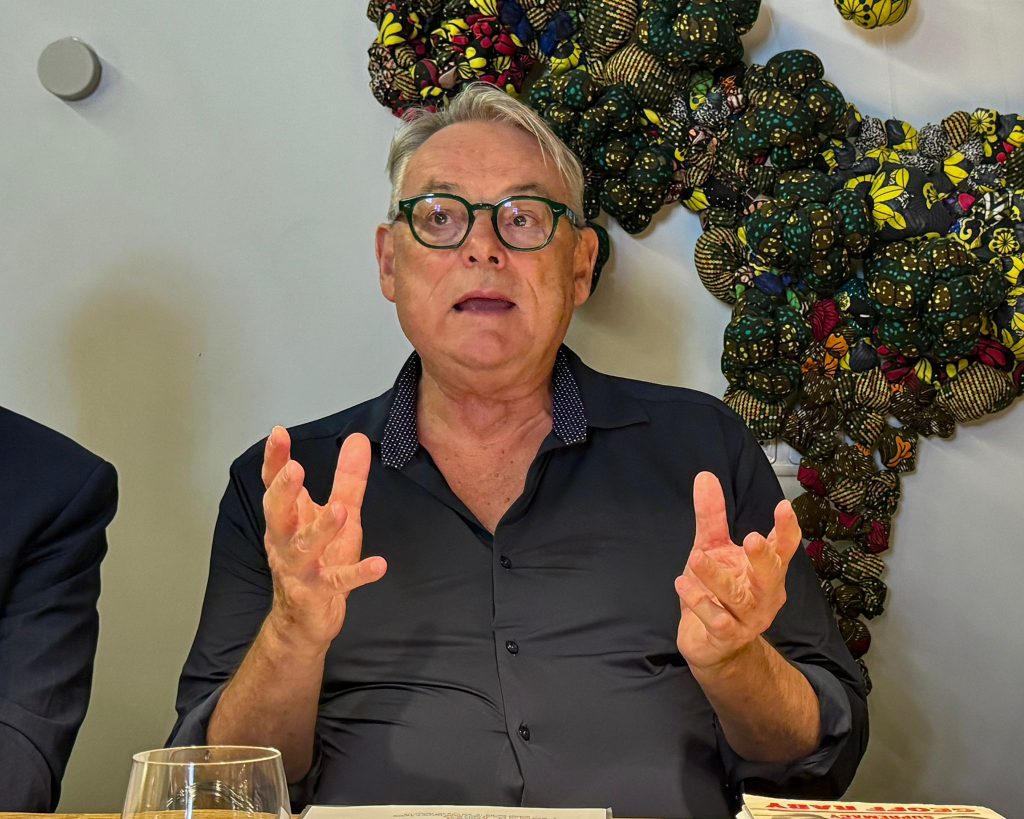
At the latest Global Neighbours Breakfast Club, former Australian Ambassador Dr. Geoffrey Raby explored how the balance of power across Eurasia is shifting – and why Europe cannot afford to ignore it.
Raby argued that China’s long-term strategy stems not from confidence, but from a deep sense of historical vulnerability. For centuries, Beijing’s priority has been to secure its borders and preserve unity across a once-fragmented territory. Policies in regions such as Xinjiang, he noted, are primarily about frontier security rather than ideology.
A shifting centre of gravity
Central Asia, Raby stressed, is central to this story. Countries such as Kazakhstan and Uzbekistan are reducing dependence on Russia and strengthening ties with China. For the first time in history, Beijing enjoys unprecedented border security, enabling it to project influence far beyond its neighbourhood. Vast rail networks and new corridors linking China with Uzbekistan and Afghanistan reflect this strategy: anchoring power deep inside Eurasia and reducing reliance on vulnerable maritime routes like the Strait of Malacca.
Raby linked these developments to classic theories of international relations, drawing on Halford Mackinder’s concept of the Eurasian Heartland and Nicholas Spykman’s Rimland theory. Chinas rapid build‑up of overland infrastructure, he argued, signals a strategic shift back towards the Eurasian interior as the central axis of global geopolitics.
Between opportunity and mistrust
Yet, Raby warned, this transformation is complex. Central Asian governments welcome Chinese investment, but public opinion remains wary of both Beijing and Moscow. Despite their proclaimed “friendship without limits,” Russia and China harbour historical mistrust and diverging interests – a potential fault line in Eurasia’s future.
Europe’s role
Europe, Raby argued, faces two interconnected challenges. First, it must engage Central Asia directly to prevent the region from falling under one dominant power. Second, it must devise a strategy to avoid Russia’s full dependence on China and seek ways to eventually reintegrate Moscow into the European sphere.
Discussion highlights
The Q&A session centred on Uzbekistan’s “economic diplomacy” and the Belt & Road Initiative as key drivers of its export-led growth. As a double landlocked state, building new links to global markets is essential for its development.
Afghanistan was also discussed: without viable economic alternatives, many rural communities risk returning to the opium economy, undermining stability. Participants emphasised sustained international investment and the role of the UN in supporting long-term solutions.
Finally, the war in Ukraine prompted debate on China’s calculus. Raby noted that while a weakened Russia may serve Beijing’s interests, a sudden regime collapse in Moscow would be a nightmare scenario for Zhongnanhai, raising fears of instability at home.
The session underscored how trade, security and political uncertainty converge in Eurasia – with consequences that will shape the global order well beyond the region.
Image: Painterstock – stock.adobe.com
